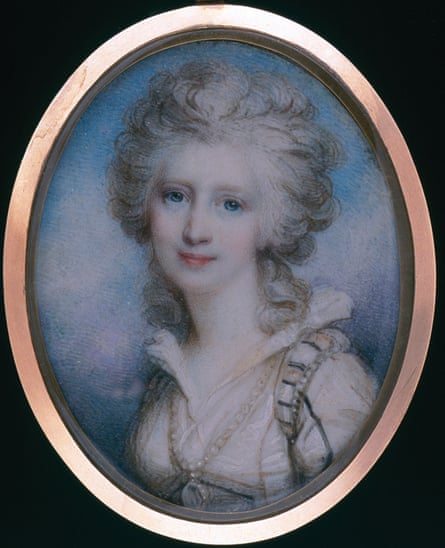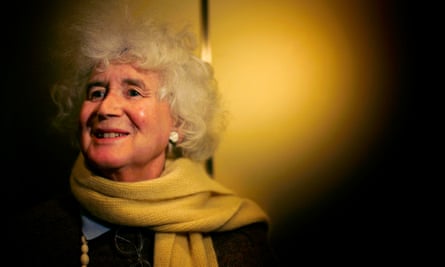The women were there from the beginning of course, whether in America, in Asia or Africa, whether as settlers or soldiers’ wives, as part of the “fishing fleet” to India or convicts in New South Wales. Like the men, they sailed across the world in cramped and dangerous conditions in order to live in often punishing conditions. Mostly, though, they were too busy surviving to write about it.
Among the splendid exceptions was Lady Anne Barnard, an early traveller in Africa. But then, as I discovered in researching her adventurous and bewilderingly eventful life, Anne wrote a great deal about everything. We were just unaware of it.

Her Cape diaries and journals from 1797 to 1802 have been published and mined by historians for the light they cast on life in the early colony, for her visions of a land of plenty at a time when imperial ambitions were confined to the east. An ardent advocate of settlement in Africa, she was yet an egalitarian, with notions of a universal humanity that jarred with those of her fellow colonists.
Exploring her vast and otherwise unpublished papers, I found that she illuminated much more besides. Living at the centre of Georgian society, she set down her observations in sparkling prose on contemporaries while playing a key role in the Prince of Wales’s secret marriage and visiting France during the revolution. Though born into the Scottish aristocracy, Anne defied convention, rejected at least 12 proposals and lived independently as a poet and musician, artist and hostess, before marrying an army officer 12 years her junior.
Their years together in Africa were her happiest. Travelling by wagon into the interior in 1798, she wrote of a new Canaan: “Here is scarcity but here will be plenty”; and of her love for her husband and their shared landscape: “Both gay, attached to each other, blessing the Great Lord who form’d the wonder before us … Let no one despair, let no heart sink with despondency: Here I am, said I again, I never thought I should have been here at all! Africa – Africa!”
These are my 10 choices of books about the remarkable lives of women in the British Empire.
1. Original Letters from India by Eliza Fay
Thanks to EM Forster, who described Mrs Fay as a work of art and arranged the publication of her letters, this indefatigable character remains as vivid today as when recounting her first journey to India in 1779, across the desert in Egypt and the Indian Ocean. She was unknown, unconnected and suffered misfortune upon misfortune, including imprisonment under Hyder Ali, but still made no fewer than four voyages to the east – one was quite enough for most travellers – where she died penniless. No extract can do justice to her sharp eye and sharper pen. Mrs Fay must be read.
2. Journal of the Disasters in Affghanistan by Florentia Sale
Harry Flashman, who had plenty to say about women and empire, called Lady Sale a vinegary old dragon with a tongue like a carving knife. Well, what else would one expect from a cad who quailed before spirited women as fast as he fled the catastrophe of Afghanistan in 1842?
Sale was, in fact, cultured as well as tough. Her diary of life in Kabul records the pleasure of sharing her geraniums and cauliflowers with “Affghan gentlemen”. Even after they turned hostile, Florentia thought them “a fine, manly-looking set”. The British commanders, on the other hand, she perceived as a pathetic lot, from the hapless General Elphinstone to various “reprehensible croakers”. Her own mettle was visible during the massacre that followed, her wound being quickly dismissed: “I had fortunately only one ball in my arm; three others passed through my poshteen near the shoulder”. During nine months of captivity she endured filth, fever and cold while writing a compelling record of the entire calamity.
3. The Ordeal of Elizabeth Marsh by Linda Colley
A striking feature about women who wrote about the early days of empire is how many experienced captivity: their tales from dungeons run by brutes made for a publishing sensation. Elizabeth Marsh did her time in Morocco in the 1760s, when Britons really could be slaves. Colley, however, has gone far beyond The Female Captive in producing this extraordinarily rich biography of an adventurer who did not stop at preserving her virginity from the harem, but remained “in motion for most of her life”, which she reshaped, as did so many, in India.
4. Travels in West Africa by Mary Kingsley
Even among this indomitable breed of women, Mary stands out for her daring. She came to Africa almost a century after Anne Barnard with a keen interest in natural history and the eye of an early anthropologist, recording impressions from Sierra Leone to Angola, Congo and Niger. She was barely less bold as a standard bearer for African culture, challenging perceptions about the colonial mission before dying as nobly as she had lived, nursing Boer prisoners of war at the Cape in 1900.
5. White Mughals by William Dalrymple
Dalrymple’s wonderful book is a saga of the enduring love affair – cultural, aesthetic, imaginative – that a certain kind of Briton enjoyed with India. At the heart of it, though, lies the tragic figure of Khair un-Nissa, a Mughal princess who won the heart and soul of James Kirkpatrick, the resident at Hyderabad. She bore him two children, yet her life in dissipated European society was short and tough. She died, aged 27, in 1813.

6. Domestic Manners of the Americans by Fanny Trollope
The travel book by Anthony Trollope’s mother is actually postcolonial, having been published a half century after the war of independence. But it brings to transatlantic observations all the prim disapproval to be expected from a mother country of such American habits as spitting and slavery. Many readers were offended, but Mark Twain rose coolly above the outcry, proclaiming his enthusiasm for “Dame Trollope” who, he said, “knew her subject well and … set it forth fairly and squarely”.
7. Out of Africa by Karen Blixen
She had a farm in Africa, in the Ngong Hills, and wrote about that landscape, its people and wildlife with a passion and lyricism that seem a world away from a decadent colonial Kenya. The reality is that her aristocratic Swedish husband could have stepped straight out of White Mischief and her lover, Denys Finch-Hatton, was forever taking to the air. But in Blixen’s Africa, beauty prevails.
8. My Brilliant Career by Miles Franklin
An Australian novel, born in the outback to a writer who was a teenager when she set down her dream of escaping Possum Gully for a more refined world. So she did, while retaining the independence an upbringing in the bush inspired: “To me,” she wrote (in 1895), “the Prince of Wales will be no more than a shearer, unless when I meet him he displays some personality apart from his princeship – otherwise he can go hang.”
9. The Grass Is Singing by Doris Lessing
A novel out of Africa, and one that anticipated the end of empire with relish. Although raised on a farm in southern Rhodesia, Lessing was always a rebel and her debut work took an astonishingly bold line in exploring the doomed relationship between a white farmer’s wife and a black servant – she vindictive and racist, yet ultimately a helplessly dependent victim. I spoke to Lessing once, long after its publication in 1950, in the light of Mugabe’s Zimbabwe. It was as if she had anticipated it all.
10. The Empire Triptych by Jan Morris
I read Pax Britannica when Jan was still James, I was still in my 20s and empire seemed still within reach. Along with its companions, Heaven’s Command and Farewell the Trumpets, it may feel dated to a later generation, not to say insufficiently infused with guilt. But it remains a literary landmark, honest and quite beautifully written, of our past and ourselves when we had “a taste for things foreign and incongruous, a recurrent yearning to break out of our gentle northern setting, all greens and greys, into more vivid places where fortunes can be made, outrageous enterprises undertaken, and the restrictive rules of scale and conduct flamboyantly disregarded.”
- Defiance: The Life and Choices of Lady Anne Barnard by Stephen Taylor is published by Faber, priced £20. It is available from the Guardian bookshop for £16.40, including free UK p&p.

Comments (…)
Sign in or create your Guardian account to join the discussion